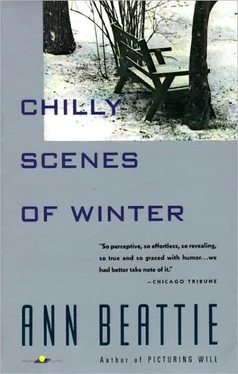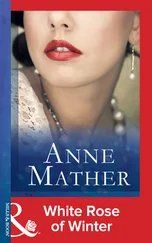Ann Beattie - Chilly Scenes of Winter
Здесь есть возможность читать онлайн «Ann Beattie - Chilly Scenes of Winter» весь текст электронной книги совершенно бесплатно (целиком полную версию без сокращений). В некоторых случаях можно слушать аудио, скачать через торрент в формате fb2 и присутствует краткое содержание. Год выпуска: 1991, Издательство: Vintage, Жанр: Современная проза, на английском языке. Описание произведения, (предисловие) а так же отзывы посетителей доступны на портале библиотеки ЛибКат.
- Название:Chilly Scenes of Winter
- Автор:
- Издательство:Vintage
- Жанр:
- Год:1991
- ISBN:нет данных
- Рейтинг книги:5 / 5. Голосов: 1
-
Избранное:Добавить в избранное
- Отзывы:
-
Ваша оценка:
- 100
- 1
- 2
- 3
- 4
- 5
Chilly Scenes of Winter: краткое содержание, описание и аннотация
Предлагаем к чтению аннотацию, описание, краткое содержание или предисловие (зависит от того, что написал сам автор книги «Chilly Scenes of Winter»). Если вы не нашли необходимую информацию о книге — напишите в комментариях, мы постараемся отыскать её.
Chilly Scenes of Winter — читать онлайн бесплатно полную книгу (весь текст) целиком
Ниже представлен текст книги, разбитый по страницам. Система сохранения места последней прочитанной страницы, позволяет с удобством читать онлайн бесплатно книгу «Chilly Scenes of Winter», без необходимости каждый раз заново искать на чём Вы остановились. Поставьте закладку, и сможете в любой момент перейти на страницу, на которой закончили чтение.
Интервал:
Закладка:
The little girl turns away from the counter to look at the cat. The priest waves to her and she smiles shyly and swivels to face the counter again.
“Are you a student?” the woman asks.
“No. I’m playing hooky from my job.”
“I played hooky all through college,” the woman says. “I flunked out. Then I got married.”
“What were you studying?” Charles asks.
“Math. After two years, when we get back from Turkey, I’m going back.”
“Do you want to teach math?”
“No. I just like getting lost in calculations. I actually enjoy balancing my checkbook.”
“I read somewhere that they were using calculators in elementary school instead of teaching arithmetic,” Charles says.
“That’s bright,” the woman says. “My sister’s got a kid in school down south and there are pictures in his textbook of black people in shanties, out on the front porch chewing watermelon. Educators are very bright.”
Watermelon. Spring. In the park with Laura. “When you get done serving all the kids, take one of those ice cream cones to the woman on the bench and another one for her little girl,” Charles had said, handing the ice cream man five dollars.
“The bright people are always in control,” the woman says. “They’re so bright that they sent my husband to Turkey, when he didn’t know as much as the man already there that they sent back here to work in Wisconsin.”
“How long has he been gone?”
“Five months. I have trouble remembering his face. I’ve got a friend whose husband died two years ago, and she says she has no idea at all what he looked like. He just looks like the picture on the piano. She says the picture was actually a consolation. It was taken when he graduated from college, so it was about ten years old. And she says now that’s it — that’s her husband.”
Charles squirms.
“Here’s my husband,” the woman says, holding open the picture folder in her wallet. Her husband is a blond haired, ordinary-looking man, tie knotted at his throat.
Charles nods.
“I’m bothering you,” the woman says. “No. You’re not bothering me.”
“I went to the park today because if I had stayed in that house another minute I was going to go nuts. My only friend is the woman I was telling you about, and she works all day. I don’t know what to do with nobody to talk to.”
“It’s nice to talk to you,” Charles says.
“I never thought I was that boring. I don’t know why I don’t have any friends. The only friends I had were his friends, and when he went to Turkey, good-bye friends. I’ve had to make arrangements to rent the house, take the kids to the doctors, I don’t know. I’m always running around. There’s always something to do. The days just get eaten up.”
The woman finishes the last of her cold coffee, puts the spoon in the cup.
“We have to charge for second cups,” the waitress says when she appears.
“That’s all right. We-Chi, do you want another hot chocolate?”
We-Chi shakes her head. She watches the cat, curled on the table, swings her legs against the base of the stool.
“Does your wife work?” Sandra says. “I’m not married.”
“Man, there’s days I’d like to be single. I might as well not be married, with my husband in Turkey.”
We-Chi sneezes, rubs her nose on the back of her hand.
“Well,” Charles says. “Soon you’ll see your husband.”
“It’s a good thing. I’ve forgotten what he looks like.”
Charles reaches in his pocket for change to leave a tip. The woman stirs her black coffee.
“I’ll give you my phone number,” the woman says. “You can come over some night for dinner. Would you do that?”
“Oh, that’s very nice of you. Sure.”
He wouldn’t.
She writes her name and number on a napkin with a black felt-tip pen. Tiny lines wave off the letters. Her name is Sandra Ribert.
“Sandra Ribert,” he says, folding the napkin.
“Ribert. Like the bread.”
“Ribert,” he repeats.
“I’d ask you for dinner tonight, but I just think that seems too bold, to be honest with you. So if you’d like to come, call. I’d like to have you.”
“I was going somewhere tonight,” he says. “But I will give you a call. Looks like your son is really sacked out,” he says.
The woman nods. Leaving, he trips over a woman’s umbrella. He pays at the cashier, sure that Sandra Ribert is staring at him. It makes him nervous, the way he always felt in high school, showering with everybody else. He always kept his eyes straight ahead, in case any of the boys thought he was looking at them. But they didn’t, and that made it doubly hard to keep his eyes straight. Gym. Mr. Franklin was his gym teacher. He called everybody “you sons of bitches,” even when he was addressing them individually. His wife taught girls’ gym. She got pregnant twice and then quit. She called the girls “ladies.” Every month the girls would compete against the boys at volleyball. Mr. Franklin would stand on the girls’ side, blowing his whistle, and his wife would stand in back of the boys, blowing hers. Whistles blew and blew. It made it very exciting. Everybody thought the Franklins were pretty nice. After the second baby Mrs. Franklin didn’t come back. Franklin was there, still shouting at the “sons of bitches.” Once when Franklin was going around the track with them he grabbed his chest and fell in the gravel. Everybody rushed to him. Franklin smiled. “I just wanted to see if you sons of bitches really cared about me,” he said. “I’ll remember it at grading time.” Nobody ever got less than a B from Franklin. Even the fat boys and the boy there was something wrong with got Bs. Franklin wrote a recommendation for Charles when he was applying to the state college. Charles had heard that a recommendation from a gym teacher would be a big help. He didn’t know why. But he asked Franklin to write the recommendation and Franklin did it. He handed it to Charles the next gym period. Franklin had spelled the name of the month wrong, and he had commas where there shouldn’t be any. Charles felt very sorry for Franklin and had trouble looking at him after that.
Back on the street, Charles decides to climb over the stone wall and go through the park to get home. He was going to take the bus, but the buses are probably getting crowded by this hour, and since he’s tired he might as well get exhausted. Nothing else to do. He crosses the street and pulls himself over the wall, walks up the slippery hill and back into the park. It is getting dark, and there is no one in the park. He jogs across the flat grass and doesn’t slow down until he is ready to descend the hill at the opposite side of the park. He is panting. He doesn’t even smoke. He swallows and realizes that his throat is much worse. He swallows again, to retest. It is much worse. He swallows again, fascinated with the soreness of his throat. He has to stick his chin out and swallow very hard to do it. Maybe he is getting the flu. He is sweating, too, but that might just be from jogging. He reaches in his pocket and takes out a tissue. Wait — that’s not a tissue. It’s Sandra Ribert’s phone number. He puts the napkin against his forehead anyway, but stops before rubbing. Who knows. Maybe he will call her some day. She seemed okay. To be honest, she seemed better than Betty. He’s not exactly sure what Betty lacks — other than not being Laura — but he’s sure he deliberately forgot to get Betty’s phone number. He even feels sorry for Betty. He feels sorry for himself, coming down with the flu. He thinks about something Susan said to him. She said, in effect, that everybody wasn’t pitiful. Why did he feel sorry for all of them? Who’s not pitiful? Sam, selling jackets? His mother, with her imaginary pains? Pete, stuck with her? Pamela Smith isn’t pitiful. Sandra Ribert isn’t pitiful. But Betty is. The blind man. Is the blind man pitiful? On general principles, sure. His boss? Nah — he’s not pitiful. He has a summer cottage on Chesapeake Bay and a rich wife, and his son goes to an ivy league college. Sam’s dead dog is pitiful. Only eight years old, and dead. It was such a good dog. Everything excited it: taking a ride in the car, going for a walk, dinner time, bedtime, playtime. Shit. He should have been nicer to the dog.
Читать дальшеИнтервал:
Закладка:
Похожие книги на «Chilly Scenes of Winter»
Представляем Вашему вниманию похожие книги на «Chilly Scenes of Winter» списком для выбора. Мы отобрали схожую по названию и смыслу литературу в надежде предоставить читателям больше вариантов отыскать новые, интересные, ещё непрочитанные произведения.
Обсуждение, отзывы о книге «Chilly Scenes of Winter» и просто собственные мнения читателей. Оставьте ваши комментарии, напишите, что Вы думаете о произведении, его смысле или главных героях. Укажите что конкретно понравилось, а что нет, и почему Вы так считаете.












